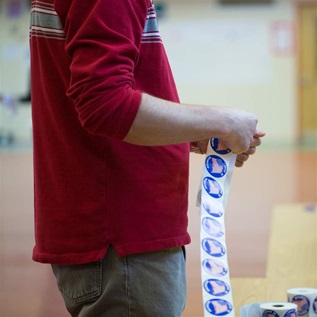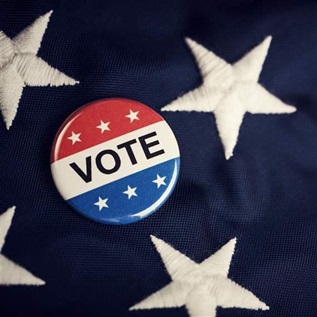Rear Admiral [Ret.] James J. Carey: Military & Overseas Voting

Rear Admiral [Ret.] James J. Carey, Senior Advisor, Election Initiatives

October 20, 2011 —When elections get underway this November, and presidential primaries begin soon after that, military personnel and citizens who live overseas will benefit from changes in state and federal laws designed to ensure that their votes will be counted.
In 2009, Pew’s report No Time to Vote showed that laws and procedures in nearly half the states and the District of Columbia left the votes of overseas military personnel at risk of being uncounted.
That same year, Congress passed the Military and Overseas Voter Empowerment (MOVE) Act, making it easier for Americans living overseas to participate in federal elections.
Rear Admiral [Ret.] James J. Carey worked with Pew as a senior advisor to push for state reforms that would extend the reach of the MOVE Act to state and local elections. As a Navy flag officer with 33 years in the service, Admiral Carey has personally experienced the challenges of voting overseas.
Q: In the years you have been involved, how have you seen military and overseas voting improve?
"The men and women we put in harm’s way should be able to participate in the democracy they protect."Rear Admiral [Ret.] James J. Carey
A: When I first joined the Navy as a young Ensign aboard the USS Topeka, I saw how ineffective and inefficient the voting process was for military personnel. In addition to my regular duties, I was the military voting assistance officer. I could have spent months being trained on all the different voting laws, requirements and forms for states, cities, and counties across the country. But ships don’t shut down for the weekend; you’re on duty 24/7. Thirty years later, when I commanded Readiness Command Six during Operation Desert Shield and Desert Storm, I was stunned to discover that not much had changed.
After I left the military, I decided to make this issue one of my primary focuses. In 2009, with the help of Pew and other organizations, Congress passed the MOVE Act. It significantly streamlined the process and removed a lot of the obstacles in military and overseas voting for federal elections. Many states passed legislation in 2010 and 2011 in response to the MOVE Act. In 2011, six states also passed the Uniform Military and Overseas Voters Act, also known as UMOVA, which provides additional protections for military and overseas voters. It was developed by the Uniform Law Commission, which drafts and promotes legislation across states to address problems they all have in common. Between the MOVE Act, UMOVA, and new state laws, there has been a massive change.
Q: As a handful of 2011 state elections and the 2012 presidential election approach, how are states changing the voting experience for military and overseas voters?
A: States will be better able to serve military and overseas voters in these upcoming elections. The MOVE Act required that ballots be sent to military and overseas citizens earlier—at least 45 days before any federal election—and faster, giving these voters a chance to cast their ballots on time. The MOVE Act and UMOVA, along with the support of many organizations, also put pressure on states to update their laws, rules, and regulations so these ballots would include not just the federal candidates, but state and local candidates as well.
While these improvements will make it easier for overseas voters to cast their ballots in the upcoming elections, challenges still remain. These are new laws so some of the states and counties could still run into issues getting ballots to and from voters in time. It’s something that will need to be tracked, but at least this time we are significantly ahead of where we were before the MOVE Act.
Q: Can you share an example of a state that’s made a significant improvement over the past year?
A: South Carolina went above and beyond to ensure that military and overseas voters would be able to participate more easily in federal, state, and local elections. The state enacted legislation this summer that extended key protections of the MOVE Act to state and local elections. In addition to getting ballots out earlier and faster to military personnel, the law eliminates the witness requirement on ballots from these voters. It will have a meaningful impact on the state’s military population, which ranks 14th in size in the nation.
Q: Why is this issue so important?
Military service men and women are our sons and daughters. They are our grandsons and granddaughters. The men and women we put in harm’s way should be able to participate in the democracy they protect. At the very least, they need to be able to be able to weigh in on who it is that can send them off to war.
Q: What else needs to be done to help military and overseas voters?
Eternal vigilance is the price of freedom. Everyone involved—Pew, its partners, and federal and state officials—will continue evaluating election administration, collecting data, and highlighting programs that work to ensure that military and overseas voting laws stay up-to-date with the realities on the ground.
In addition to legislation, we need to ensure that voters have accurate registration information on the voter rolls so the right ballots get to the right addresses. We need to provide easy online access to voting information, including tools that can help voters easily complete a federal write-in absentee ballot. Pew has been working with the states and other partners to address these issues through efforts such as the Upgrading Voter Registration Project and the Voting Information Project. Significant progress has been made, but we need to stay focused and look for opportunities to keep moving forward.











